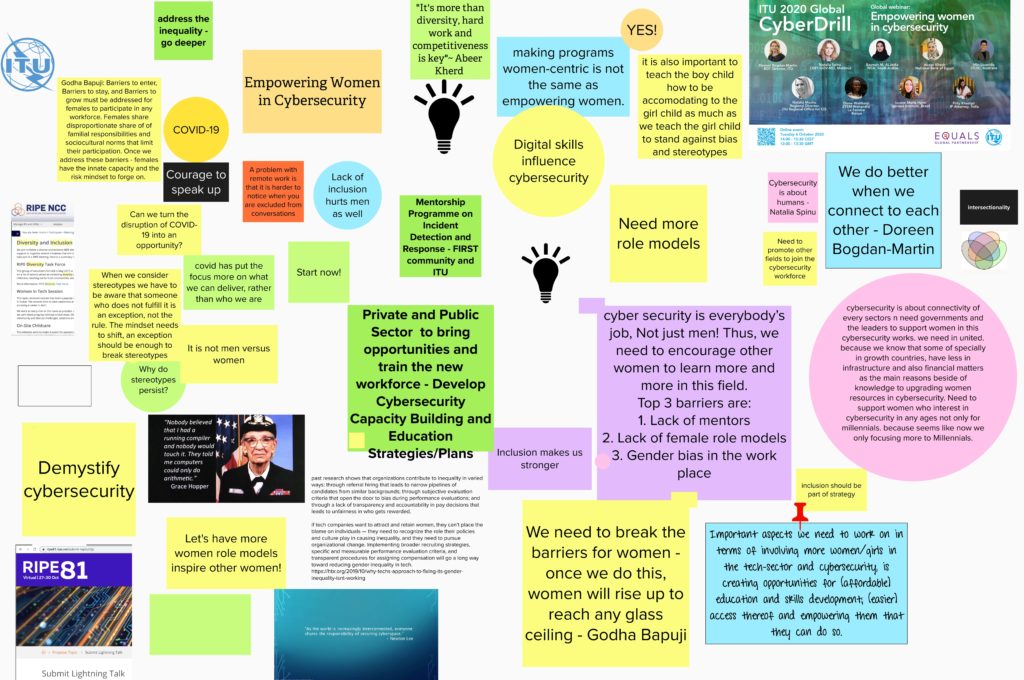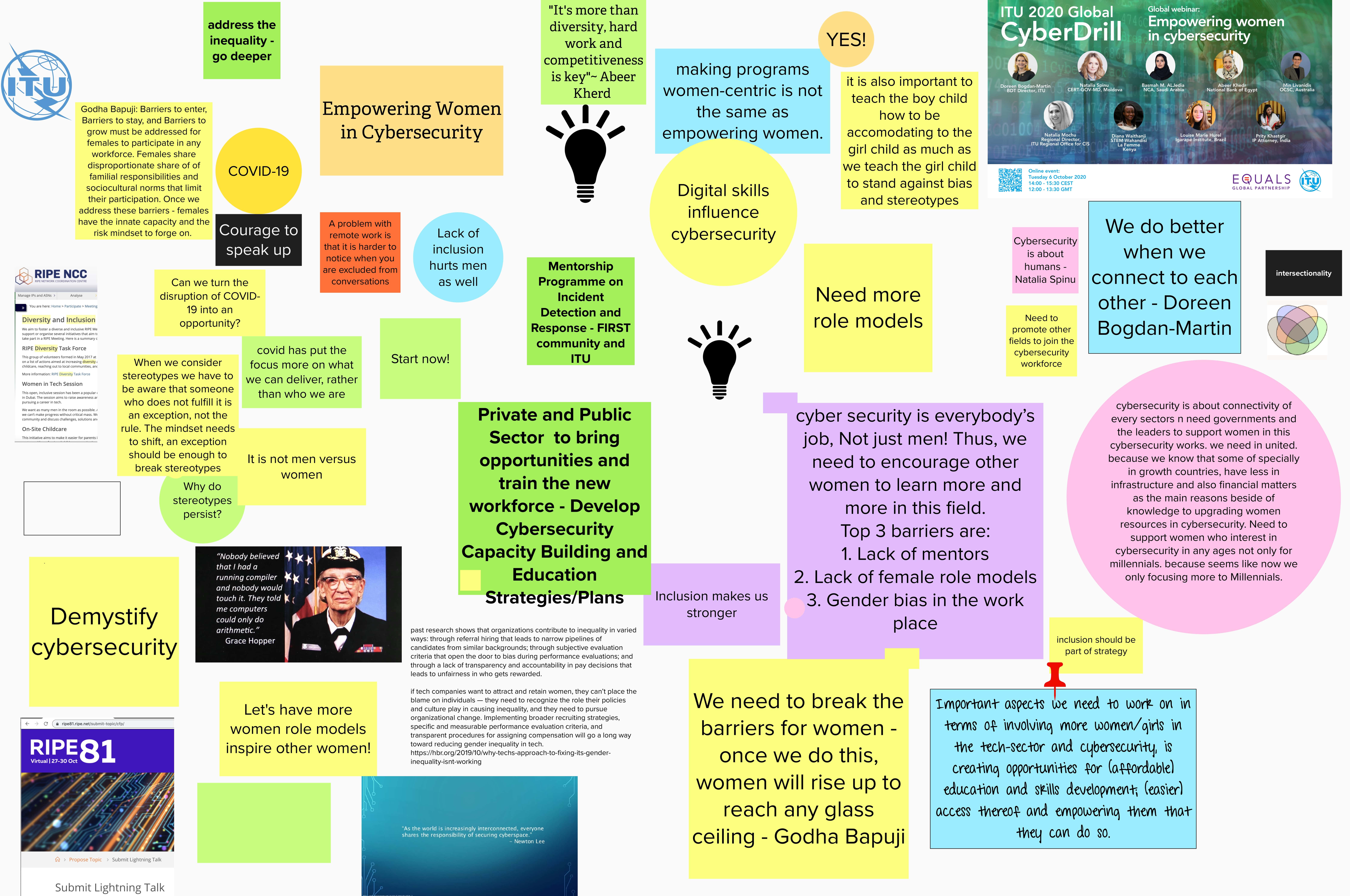By Dianah Ajuna Byaruhanga
October was cybersecurity awareness month, and I was delighted to attend various cybersecurity conferences online throughout the whole month. I am a New and Emerging Researcher as well as Queen Elizabeth Scholars (QES) Fellow with the Open AIR network. As part of my QES research, I am looking into ways of promoting an increase in women’s participation in the cybersecurity workforce in Africa. Although we live in a world of technologies and opportunities, we cannot ignore the existence of a digital gender divide.
The Digital Gender Divide
Although the digital gender gap is decreasing, it still has a long way to go. Studies have shown that there is a global gender gap in the cybersecurity field. For instance, according to the (ISC)2 Cybersecurity Workforce Study, 2019, the global percentage of women participating in cybersecurity has risen from 11% in 2013 to 20% in 2019. According to cybersecurity venture, there will be up to 3.5 million job openings by 2021 and yet women make up only 20% of the global cybersecurity workforce. While this is up to from a mere 11% in 2013, there are still a lot of opportunities that women can take up in cybersecurity careers.
Unfortunately, the evidence used in these studies of the cybersecurity gender divide have been based on statistics about the workforce of large technology companies or submissions to a small number of prestigious conferences in developed countries, mostly North America, Europe, Australia, and Japan. Studies in Africa have not yet been fully explored. Encouraging more women to join the cybersecurity sector in Africa will increase the economic power in Africa and bring new ideas and innovation to the field. While a lack of gender diversity in cybersecurity is a rising concern, my research will bring out the disparities in the participation of women in cybersecurity in Africa. As we celebrated cybersecurity awareness month, we should not forget Africa.
Cybersecurity Discussions
I attended three major conferences organized by the International Telecommunication Union (ITU). The International Telecommunication Union, is a specialized agency of the United Nations responsible for all matters related to information and communication technologies. The three conferences included:
1. National Cybersecurity Strategies – Implementation and Monitoring
2. Empowering Women in Cybersecurity and
3. The Cyber Crisis Management Planning: How to Reduce Cyber Risk and Increase National Cyber Resilience.
These three conferences focused on concerns of cybercrime damages and the comprehensive cybersecurity strategies. The discussions among others were on how to make cyberspace safer since cyber risks threaten the confidentiality, integrity and availability of ICT infrastructure and services globally. In all the three online conferences, Cybersecurity experts majorly from Europe, U.S, and Asia with different backgrounds and from different sectors shared their experiences and knowledge on the importance of national cybersecurity strategy related actions to build greater cybersecurity resilience and readiness. Although it was stated that cybercrime damages are projected to exceed six trillion US dollars in 2021, there was no particular mention of how Africa as a region would be affected by cybercrime. The experiences of the speakers were mostly from the experiences in other areas of the world but not necessarily Africa.
Africa in Cybersecurity Discussions
As a female African, I was particularly happy to have participated in the conference on empowering women in cybersecurity since it gave me an insight on various approaches on how to increase women participation in cybersecurity workforce. This conference included a panel of speakers from all over the world who addressed challenges women face in the field of cybersecurity as well as changes that are needed to support retention and inclusivity. Although this was not specific to Africa, one of the main speakers was Diana Waithanji who is a software engineer and a cybersecurity engineer based in Kenya/Africa. She was able to give an insight of her experience in Kenya as a promoter of mentorship programs for high school students into engineering and technology (including cybersecurity). However, given the many African countries and their different rate of development, the perspective was specific to Kenya which is a fast-growing technology hub in Africa.
At the conclusion of the cybersecurity month, I gathered that there is need to promote more projects, activities and regular interactions in African countries to raise awareness and build the needed cybersecurity skills in Africa.

Recommendations on an interactive virtual whiteboard during the Empowering Women in Cybersecurity Conference. (Source: ITU website)










